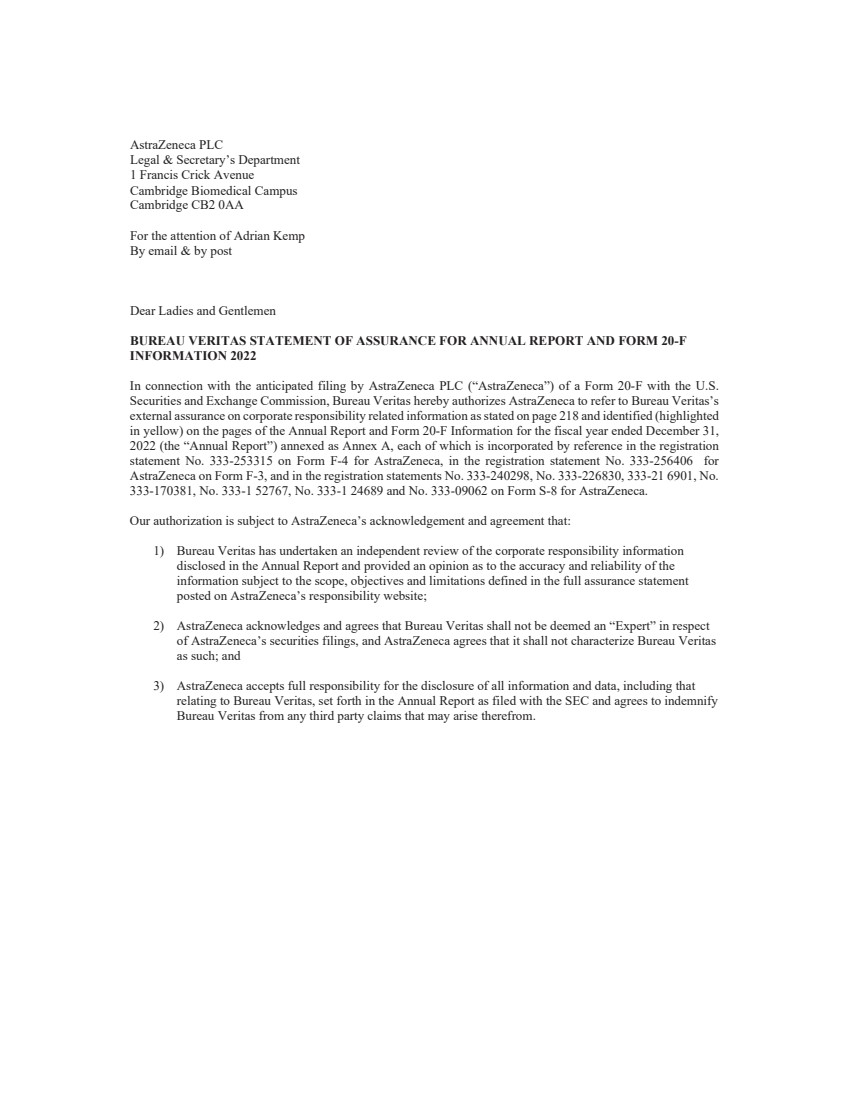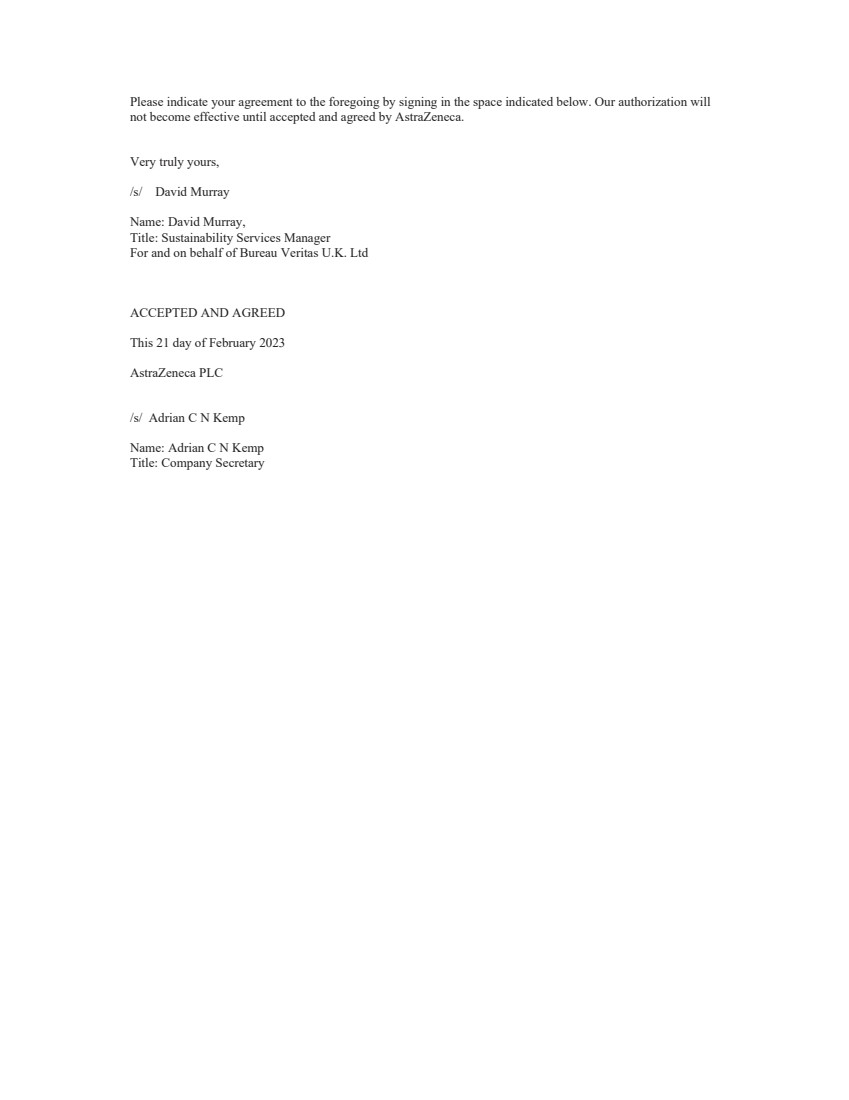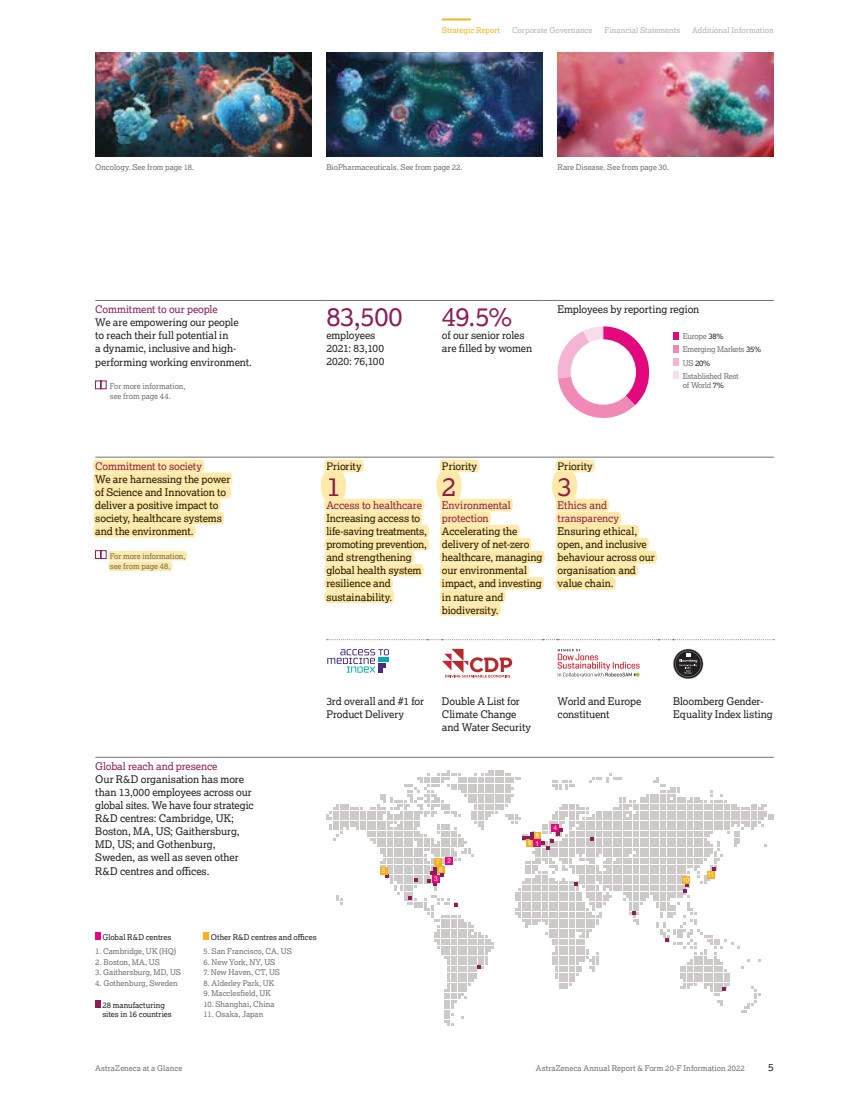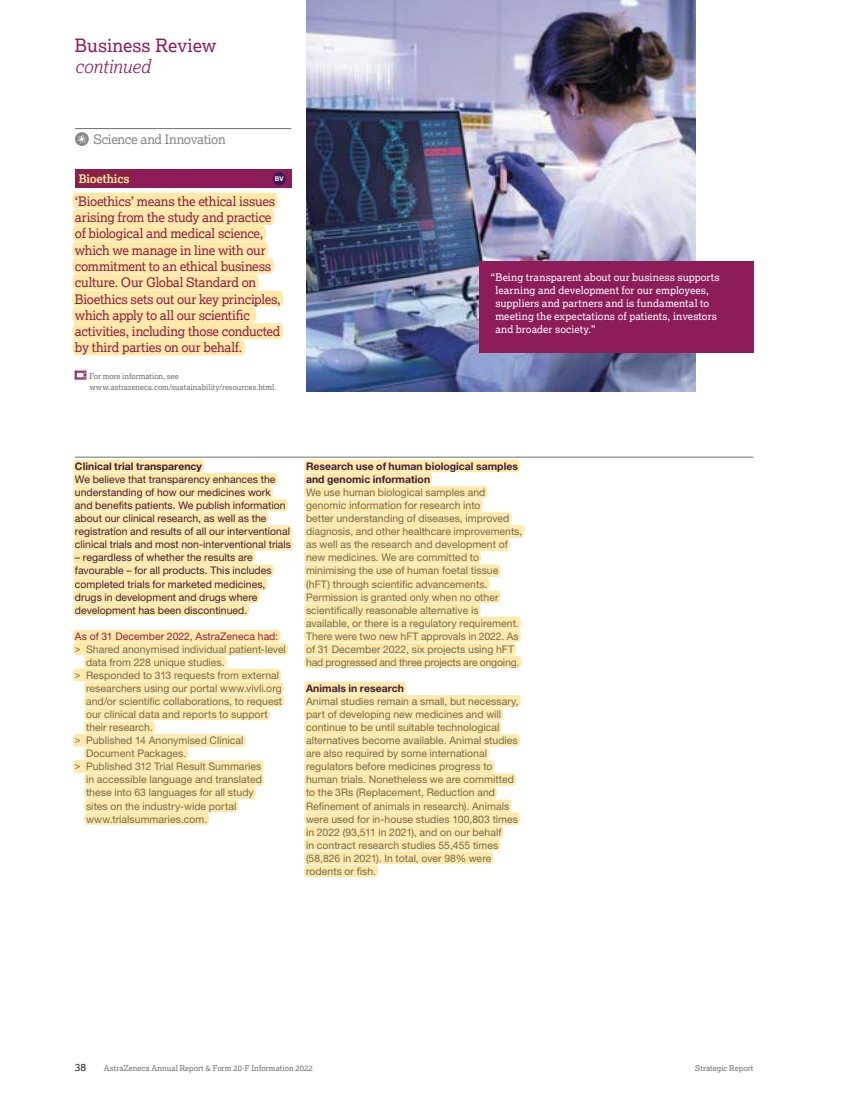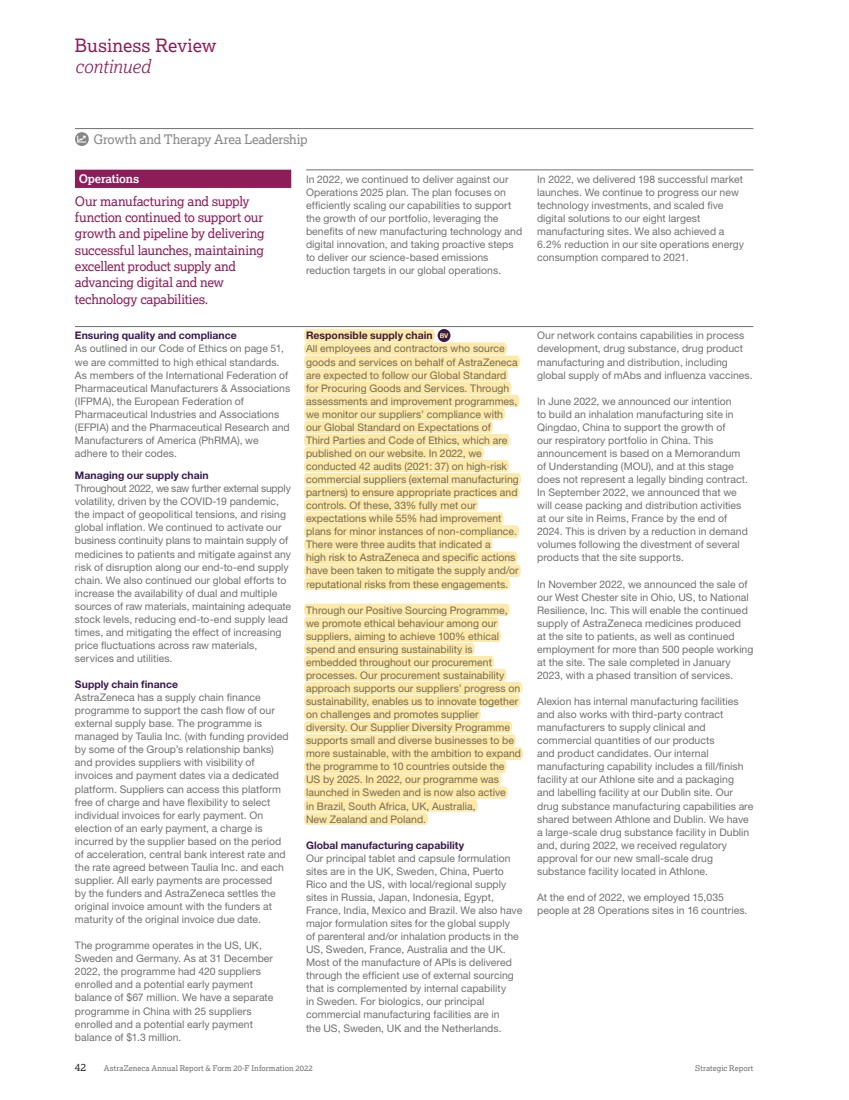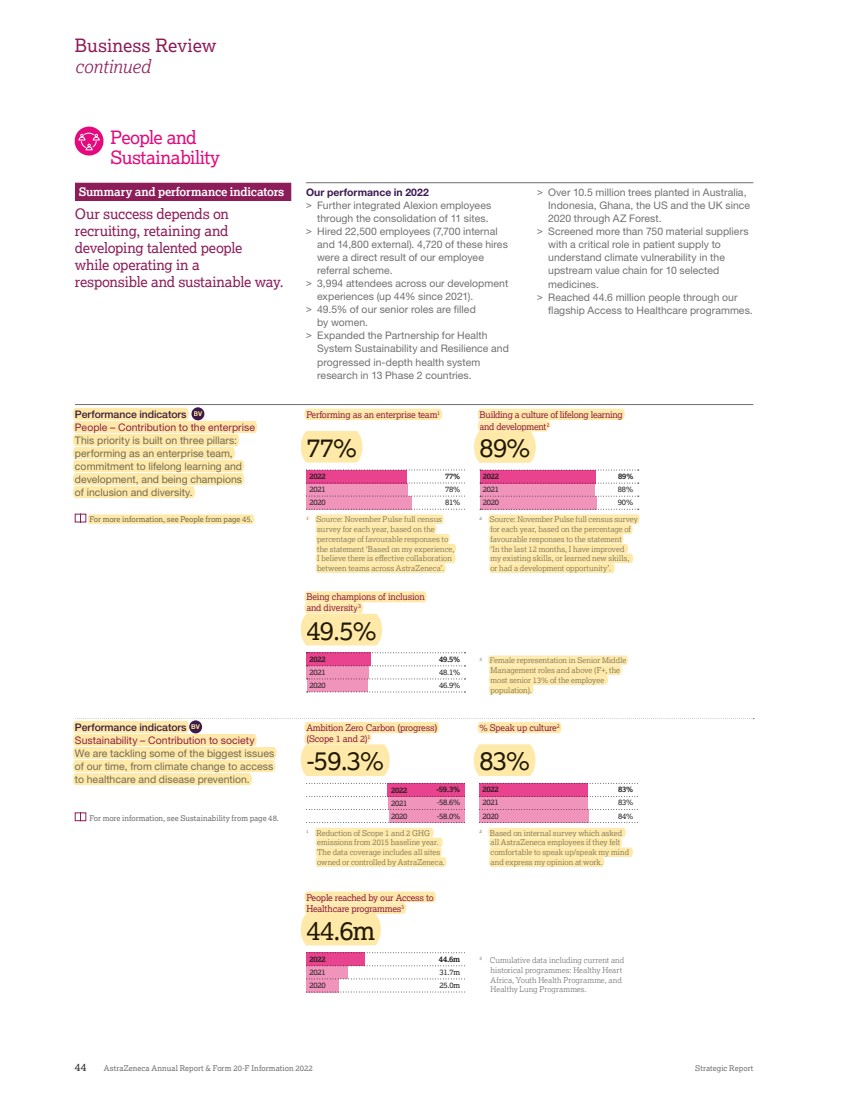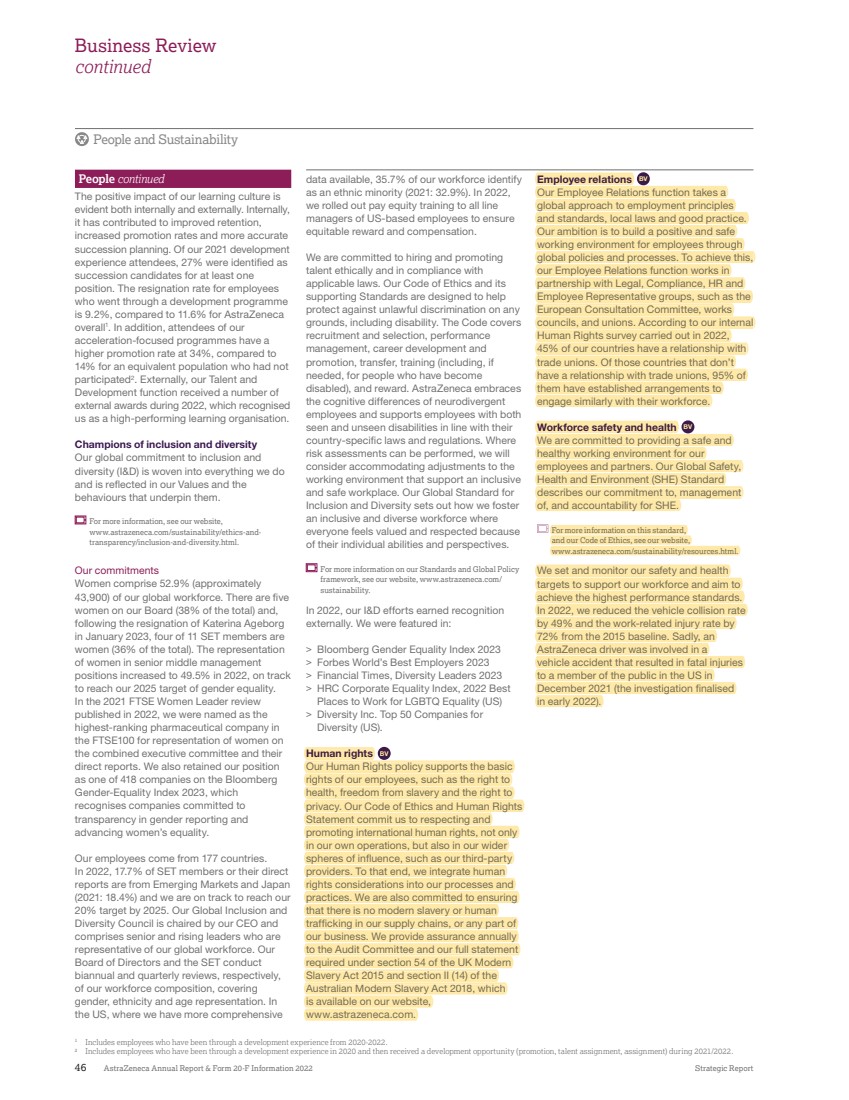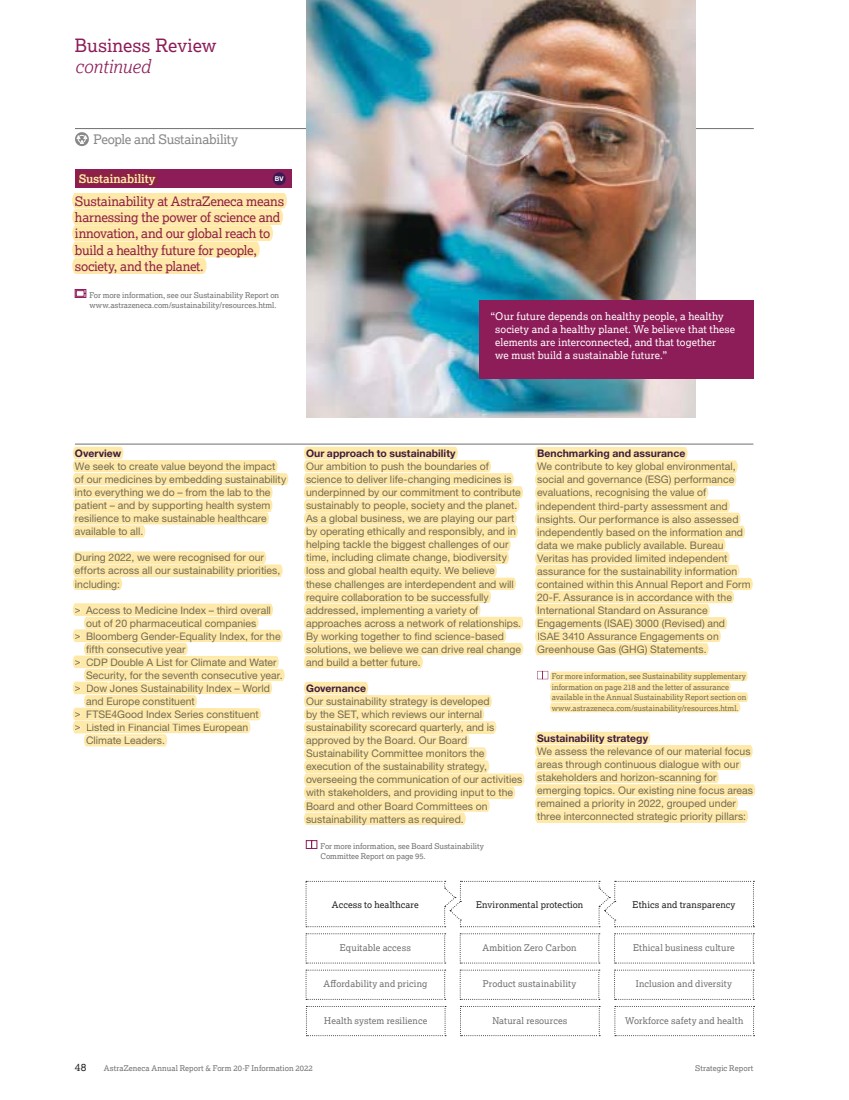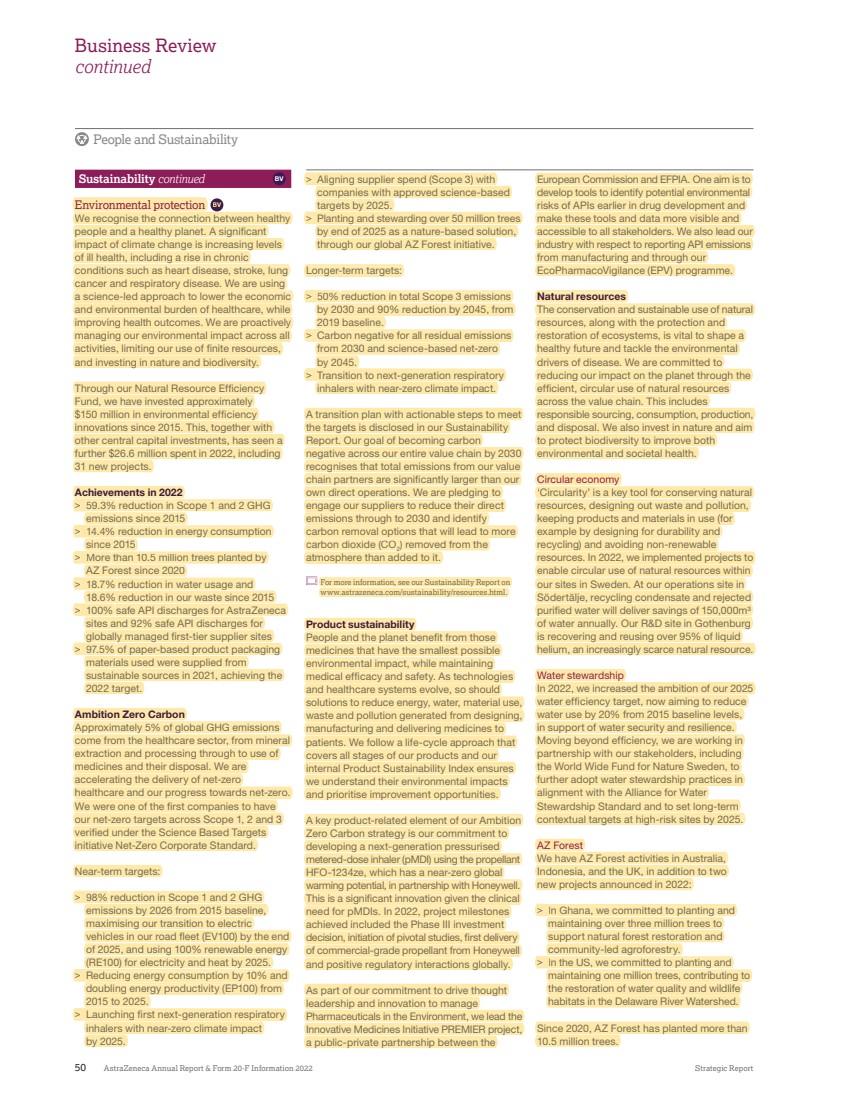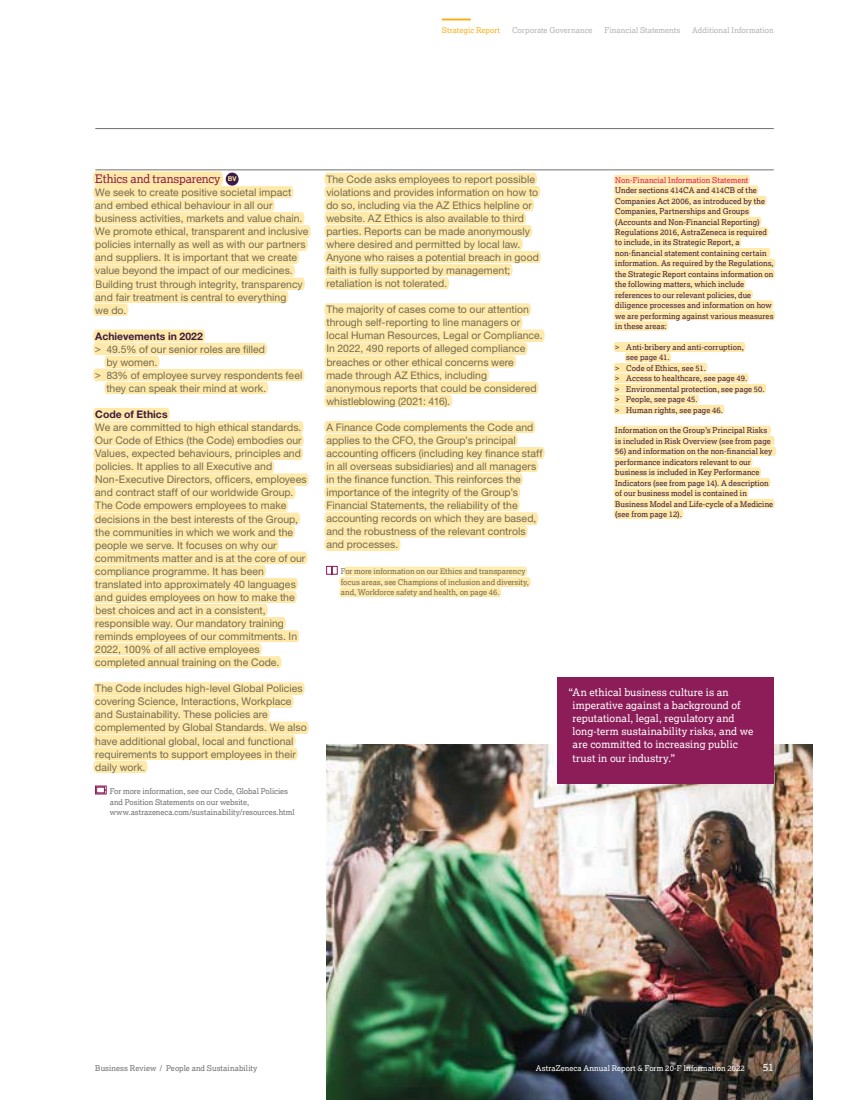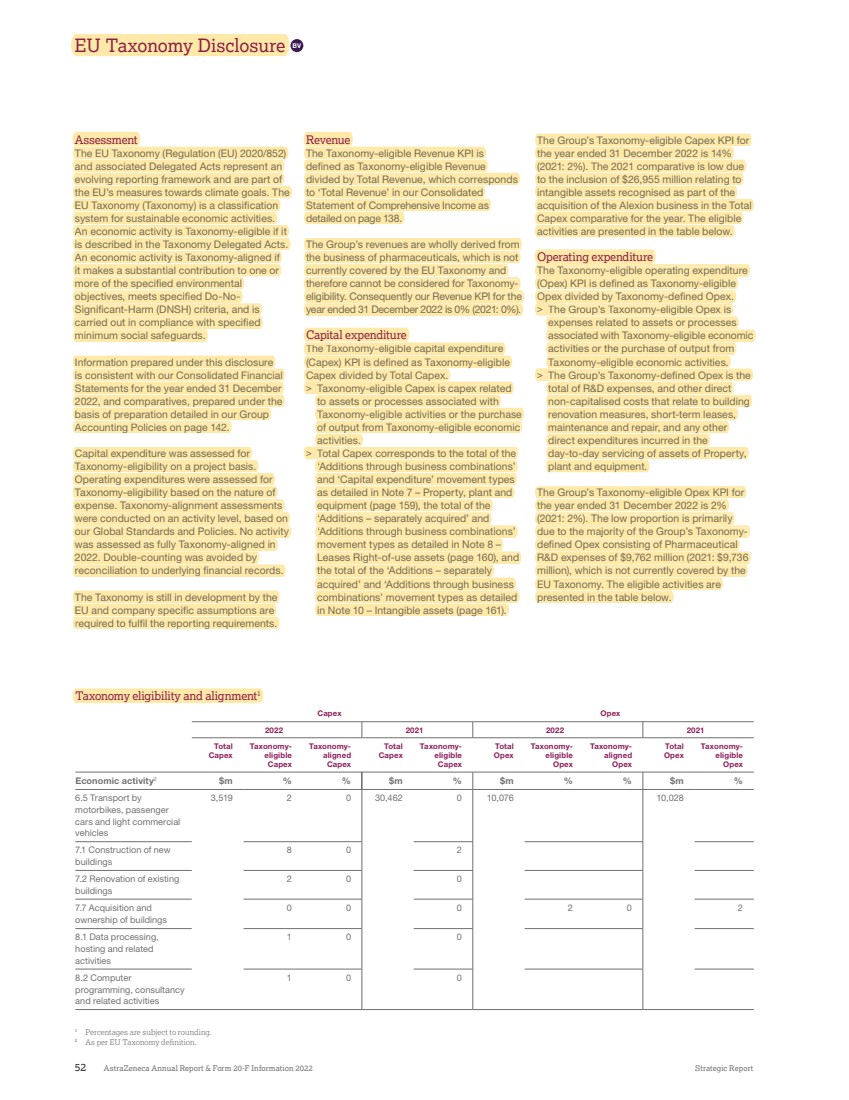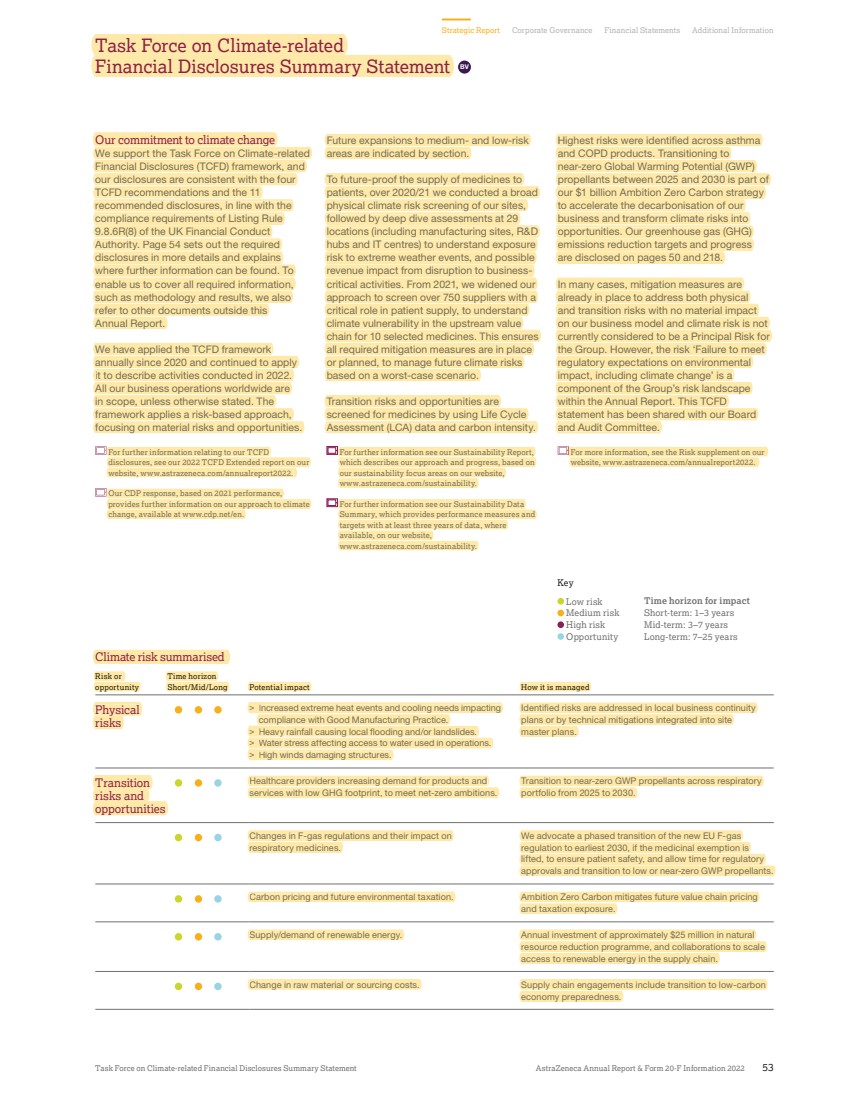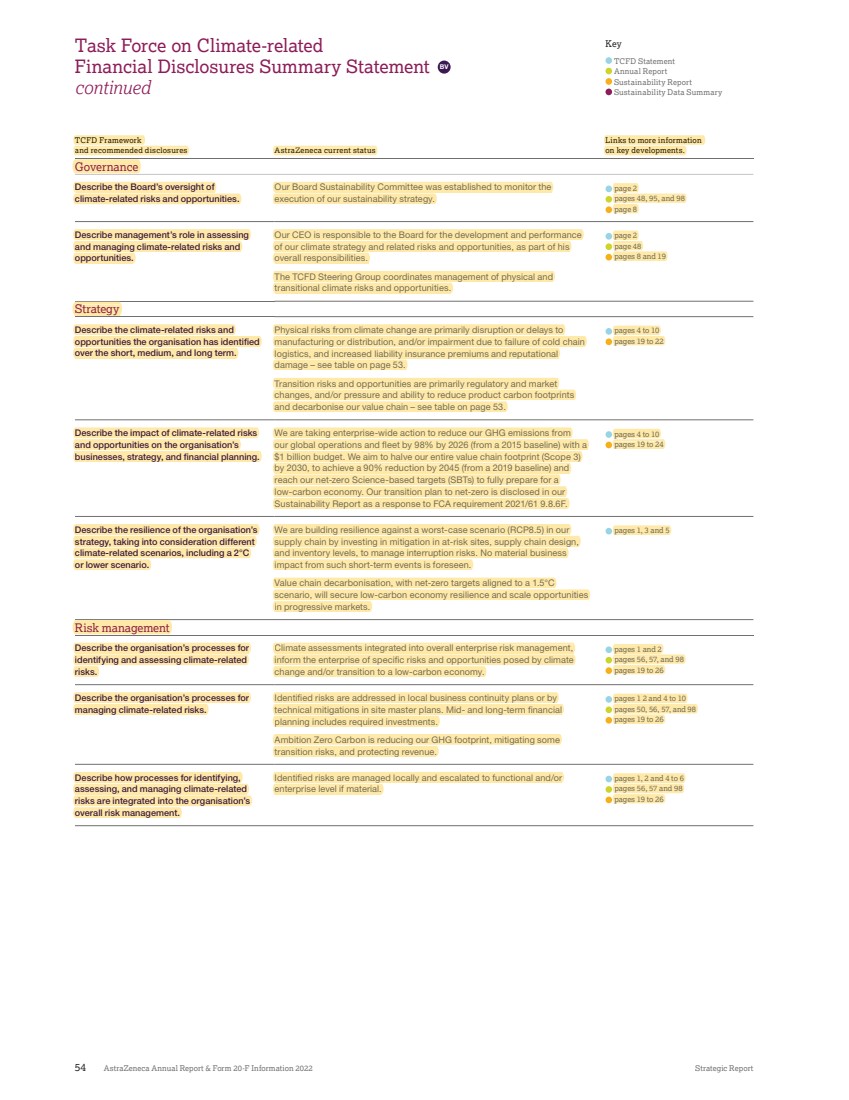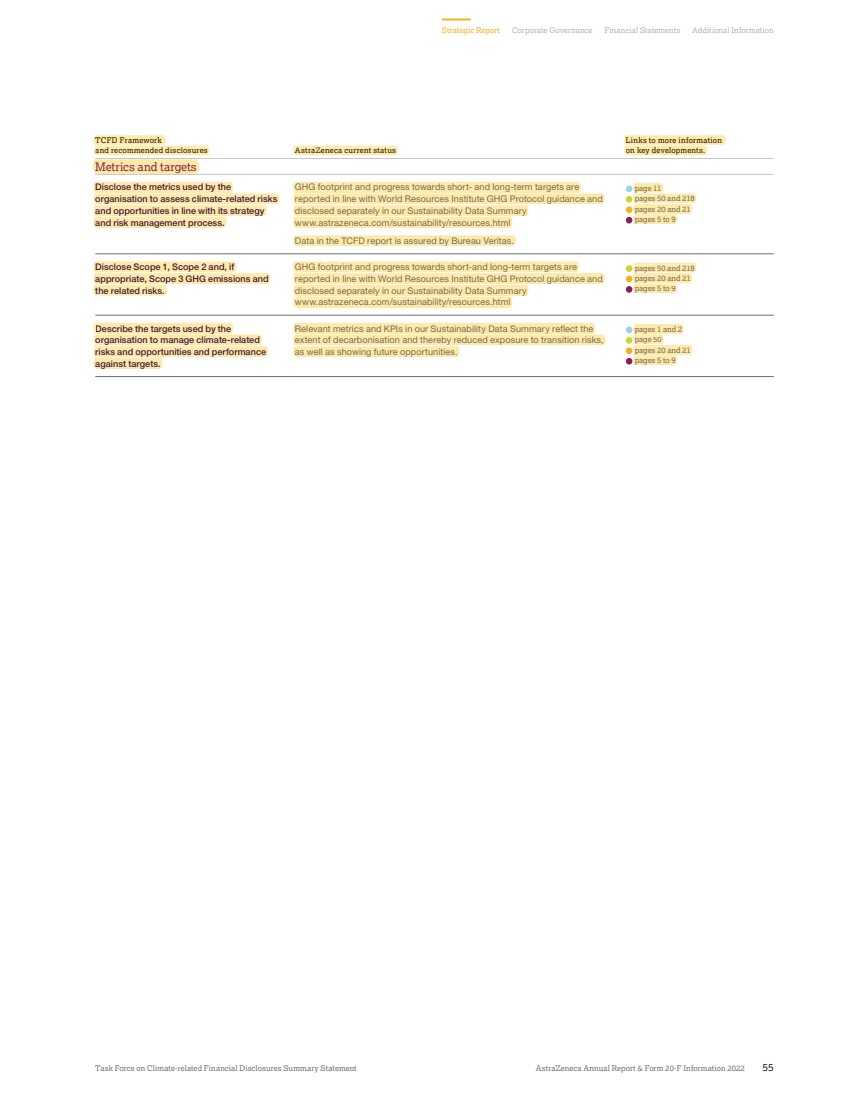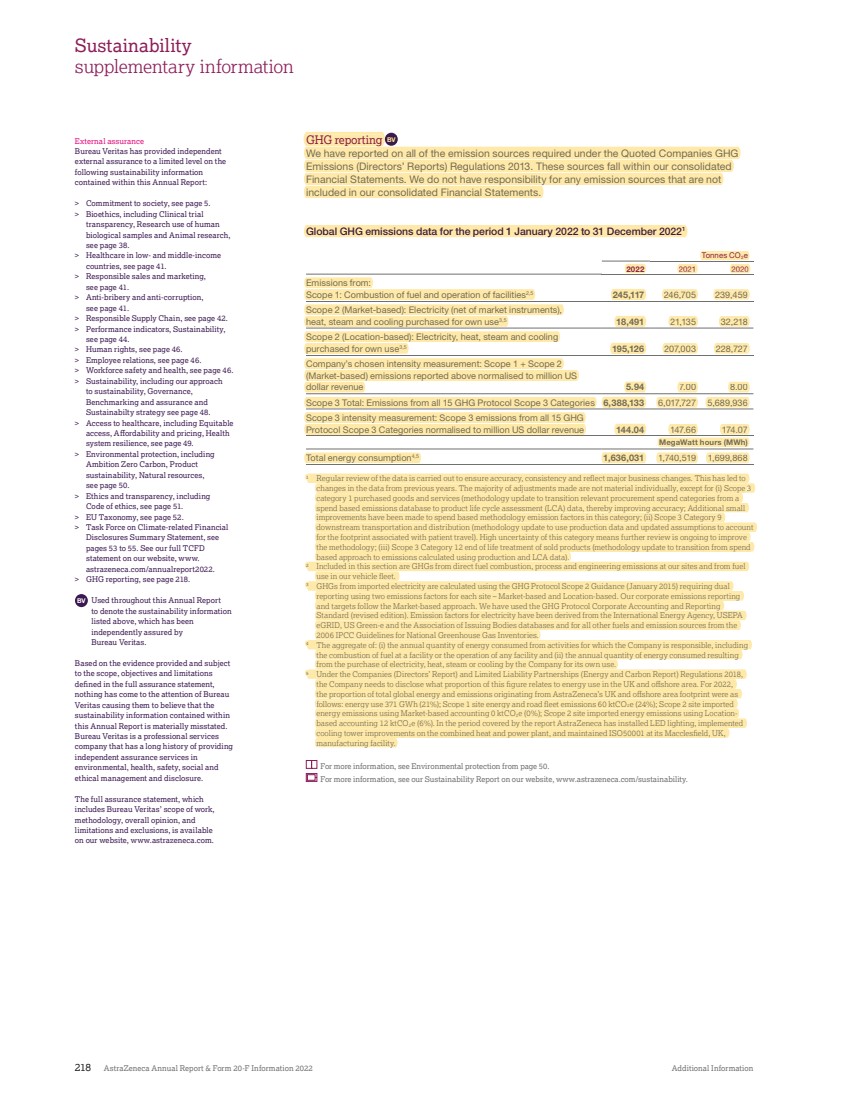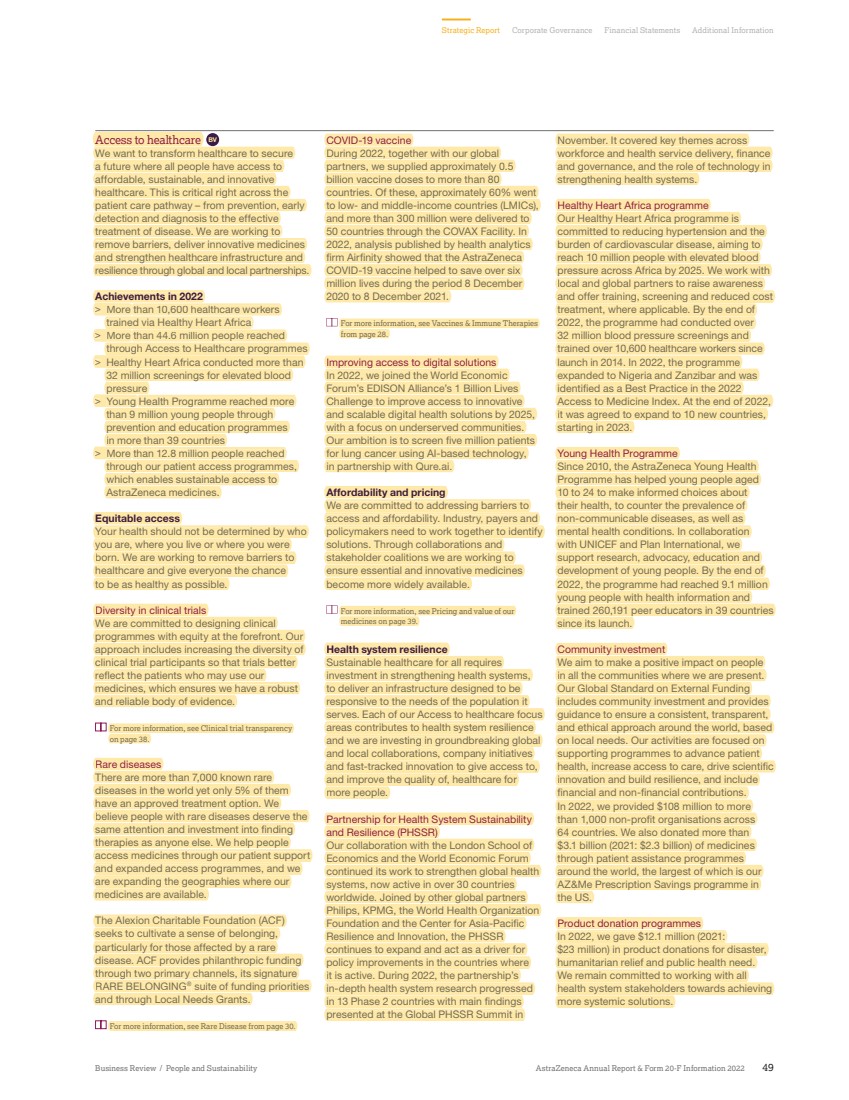
| COVID-19 vaccine During 2022, together with our global partners, we supplied approximately 0.5 billion vaccine doses to more than 80 countries. Of these, approximately 60% went to low- and middle-income countries (LMICs), and more than 300 million were delivered to 50 countries through the COVAX Facility. In 2022, analysis published by health analytics firm Airfinity showed that the AstraZeneca COVID-19 vaccine helped to save over six million lives during the period 8 December 2020 to 8 December 2021. For more information, see Vaccines & Immune Therapies from page 28. Improving access to digital solutions In 2022, we joined the World Economic Forum’s EDISON Alliance’s 1 Billion Lives Challenge to improve access to innovative and scalable digital health solutions by 2025, with a focus on underserved communities. Our ambition is to screen five million patients for lung cancer using AI-based technology, in partnership with Qure.ai. Affordability and pricing We are committed to addressing barriers to access and affordability. Industry, payers and policymakers need to work together to identify solutions. Through collaborations and stakeholder coalitions we are working to ensure essential and innovative medicines become more widely available. For more information, see Pricing and value of our medicines on page 39. Health system resilience Sustainable healthcare for all requires investment in strengthening health systems, to deliver an infrastructure designed to be responsive to the needs of the population it serves. Each of our Access to healthcare focus areas contributes to health system resilience and we are investing in groundbreaking global and local collaborations, company initiatives and fast-tracked innovation to give access to, and improve the quality of, healthcare for more people. Partnership for Health System Sustainability and Resilience (PHSSR) Our collaboration with the London School of Economics and the World Economic Forum continued its work to strengthen global health systems, now active in over 30 countries worldwide. Joined by other global partners Philips, KPMG, the World Health Organization Foundation and the Center for Asia-Pacific Resilience and Innovation, the PHSSR continues to expand and act as a driver for policy improvements in the countries where it is active. During 2022, the partnership’s in-depth health system research progressed in 13 Phase 2 countries with main findings presented at the Global PHSSR Summit in Access to healthcare BV We want to transform healthcare to secure a future where all people have access to affordable, sustainable, and innovative healthcare. This is critical right across the patient care pathway – from prevention, early detection and diagnosis to the effective treatment of disease. We are working to remove barriers, deliver innovative medicines and strengthen healthcare infrastructure and resilience through global and local partnerships. Achievements in 2022 > More than 10,600 healthcare workers trained via Healthy Heart Africa > More than 44.6 million people reached through Access to Healthcare programmes > Healthy Heart Africa conducted more than 32 million screenings for elevated blood pressure > Young Health Programme reached more than 9 million young people through prevention and education programmes in more than 39 countries > More than 12.8 million people reached through our patient access programmes, which enables sustainable access to AstraZeneca medicines. Equitable access Your health should not be determined by who you are, where you live or where you were born. We are working to remove barriers to healthcare and give everyone the chance to be as healthy as possible. Diversity in clinical trials We are committed to designing clinical programmes with equity at the forefront. Our approach includes increasing the diversity of clinical trial participants so that trials better reflect the patients who may use our medicines, which ensures we have a robust and reliable body of evidence. For more information, see Clinical trial transparency on page 38. Rare diseases There are more than 7,000 known rare diseases in the world yet only 5% of them have an approved treatment option. We believe people with rare diseases deserve the same attention and investment into finding therapies as anyone else. We help people access medicines through our patient support and expanded access programmes, and we are expanding the geographies where our medicines are available. The Alexion Charitable Foundation (ACF) seeks to cultivate a sense of belonging, particularly for those affected by a rare disease. ACF provides philanthropic funding through two primary channels, its signature RARE BELONGING® suite of funding priorities and through Local Needs Grants. For more information, see Rare Disease from page 30. November. It covered key themes across workforce and health service delivery, finance and governance, and the role of technology in strengthening health systems. Healthy Heart Africa programme Our Healthy Heart Africa programme is committed to reducing hypertension and the burden of cardiovascular disease, aiming to reach 10 million people with elevated blood pressure across Africa by 2025. We work with local and global partners to raise awareness and offer training, screening and reduced cost treatment, where applicable. By the end of 2022, the programme had conducted over 32 million blood pressure screenings and trained over 10,600 healthcare workers since launch in 2014. In 2022, the programme expanded to Nigeria and Zanzibar and was identified as a Best Practice in the 2022 Access to Medicine Index. At the end of 2022, it was agreed to expand to 10 new countries, starting in 2023. Young Health Programme Since 2010, the AstraZeneca Young Health Programme has helped young people aged 10 to 24 to make informed choices about their health, to counter the prevalence of non-communicable diseases, as well as mental health conditions. In collaboration with UNICEF and Plan International, we support research, advocacy, education and development of young people. By the end of 2022, the programme had reached 9.1 million young people with health information and trained 260,191 peer educators in 39 countries since its launch. Community investment We aim to make a positive impact on people in all the communities where we are present. Our Global Standard on External Funding includes community investment and provides guidance to ensure a consistent, transparent, and ethical approach around the world, based on local needs. Our activities are focused on supporting programmes to advance patient health, increase access to care, drive scientific innovation and build resilience, and include financial and non-financial contributions. In 2022, we provided $108 million to more than 1,000 non-profit organisations across 64 countries. We also donated more than $3.1 billion (2021: $2.3 billion) of medicines through patient assistance programmes around the world, the largest of which is our AZ&Me Prescription Savings programme in the US. Product donation programmes In 2022, we gave $12.1 million (2021: $23 million) in product donations for disaster, humanitarian relief and public health need. We remain committed to working with all health system stakeholders towards achieving more systemic solutions. AstraZeneca Annual Report & Form 20-F Information 2022 49 Strategic Report Corporate Governance Additional Information Financial Statements Business Review / People and Sustainability Access to healthcare BV We want to transform healthcare to secure a future where all people have access to affordable, sustainable, and innovative healthcare. This is critical right across the patient care pathway – from prevention, early detection and diagnosis to the effective treatment of disease. We are working to remove barriers, deliver innovative medicines and strengthen healthcare infrastructure and resilience through global and local partnerships. Achievements in 2022 > More than 10,600 healthcare workers trained via Healthy Heart Africa > More than 44.6 million people reached through Access to Healthcare programmes > Healthy Heart Africa conducted more than 32 million screenings for elevated blood pressure > Young Health Programme reached more than 9 million young people through prevention and education programmes in more than 39 countries > More than 12.8 million people reached through our patient access programmes, which enables sustainable access to AstraZeneca medicines. Equitable access Your health should not be determined by who you are, where you live or where you were born. We are working to remove barriers to healthcare and give everyone the chance to be as healthy as possible. Diversity in clinical trials We are committed to designing clinical programmes with equity at the forefront. Our approach includes increasing the diversity of clinical trial participants so that trials better reflect the patients who may use our medicines, which ensures we have a robust and reliable body of evidence. For more information, see Clinical trial transparency on page 38. Rare diseases There are more than 7,000 known rare diseases in the world yet only 5% of them have an approved treatment option. We believe people with rare diseases deserve the same attention and investment into finding therapies as anyone else. We help people access medicines through our patient support and expanded access programmes, and we are expanding the geographies where our medicines are available. The Alexion Charitable Foundation (ACF) seeks to cultivate a sense of belonging, particularly for those affected by a rare disease. ACF provides philanthropic funding through two primary channels, its signature RARE BELONGING suite of funding priorities ® and through Local Needs Grants. For more information, see Rare Disease from page 30. COVID-19 vaccine During 2022, together with our global partners, we supplied approximately 0.5 billion vaccine doses to more than 80 countries. Of these, approximately 60% went to low- and middle-income countries (LMICs), and more than 300 million were delivered to 50 countries through the COVAX Facility. In 2022, analysis published by health analytics firm Airfinity showed that the AstraZeneca COVID-19 vaccine helped to save over six million lives during the period 8 December 2020 to 8 December 2021. For more information, see Vaccines & Immune Therapies from page 28. Improving access to digital solutions In 2022, we joined the World Economic Forum’s EDISON Alliance’s 1 Billion Lives Challenge to improve access to innovative and scalable digital health solutions by 2025, with a focus on underserved communities. Our ambition is to screen five million patients for lung cancer using AI-based technology, in partnership with Qure.ai. Affordability and pricing We are committed to addressing barriers to access and affordability. Industry, payers and policymakers need to work together to identify solutions. Through collaborations and stakeholder coalitions we are working to ensure essential and innovative medicines become more widely available. For more information, see Pricing and value of our medicines on page 39. Health system resilience Sustainable healthcare for all requires investment in strengthening health systems, to deliver an infrastructure designed to be responsive to the needs of the population it serves. Each of our Access to healthcare focus areas contributes to health system resilience and we are investing in groundbreaking global and local collaborations, company initiatives and fast-tracked innovation to give access to, and improve the quality of, healthcare for more people. Partnership for Health System Sustainability and Resilience (PHSSR) Our collaboration with the London School of Economics and the World Economic Forum continued its work to strengthen global health systems, now active in over 30 countries worldwide. Joined by other global partners Philips, KPMG, the World Health Organization Foundation and the Center for Asia-Pacific Resilience and Innovation, the PHSSR continues to expand and act as a driver for policy improvements in the countries where it is active. During 2022, the partnership’s in-depth health system research progressed in 13 Phase 2 countries with main findings presented at the Global PHSSR Summit in November. It covered key themes across workforce and health service delivery, finance and governance, and the role of technology in strengthening health systems. Healthy Heart Africa programme Our Healthy Heart Africa programme is committed to reducing hypertension and the burden of cardiovascular disease, aiming to reach 10 million people with elevated blood pressure across Africa by 2025. We work with local and global partners to raise awareness and offer training, screening and reduced cost treatment, where applicable. By the end of 2022, the programme had conducted over 32 million blood pressure screenings and trained over 10,600 healthcare workers since launch in 2014. In 2022, the programme expanded to Nigeria and Zanzibar and was identified as a Best Practice in the 2022 Access to Medicine Index. At the end of 2022, it was agreed to expand to 10 new countries, starting in 2023. Young Health Programme Since 2010, the AstraZeneca Young Health Programme has helped young people aged 10 to 24 to make informed choices about their health, to counter the prevalence of non-communicable diseases, as well as mental health conditions. In collaboration with UNICEF and Plan International, we support research, advocacy, education and development of young people. By the end of 2022, the programme had reached 9.1 million young people with health information and trained 260,191 peer educators in 39 countries since its launch. Community investment We aim to make a positive impact on people in all the communities where we are present. Our Global Standard on External Funding includes community investment and provides guidance to ensure a consistent, transparent, and ethical approach around the world, based on local needs. Our activities are focused on supporting programmes to advance patient health, increase access to care, drive scientific innovation and build resilience, and include financial and non-financial contributions. In 2022, we provided $108 million to more than 1,000 non-profit organisations across 64 countries. We also donated more than $3.1 billion (2021: $2.3 billion) of medicines through patient assistance programmes around the world, the largest of which is our AZ&Me Prescription Savings programme in the US. Product donation programmes In 2022, we gave $12.1 million (2021: $23 million) in product donations for disaster, humanitarian relief and public health need. We remain committed to working with all health system stakeholders towards achieving more systemic solutions. |
